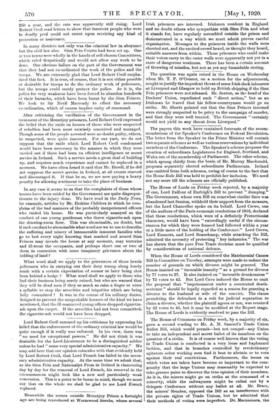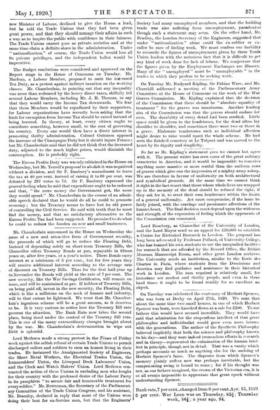The House of Commons on Friday week, by a majority
of six, gave a second reading to Mr. A. M. Samuel's Trade Union Ballot Bill, which would permit—but not compel—any_ Union to take an independent and secret ballot of its members on the question of a strike. It is of course well known that the voting in Trade Unions is conducted in a very loose and haphazard fashion, and that in branches controlled by revolutionary agitators sober working men find it best to abstain or to vote against their real convictions. Furthermore, the issues on which votes are taken have become so important to the com- munity that the large Unions may reasonably be expected to take greater pains to discover the true opinion of their members. As it is, the miners might go on strike at the command of a minority, while the railwaymen might be called out by a delegate Conference without any ballot at all. Mr. Brace, the miners' Member, opposed the Bill as an interference with the private rights of Trade Unions, but he admitted that their methods of voting were imperfect. Dr. Macnamara, the new Minister of Labour, declined to give the House a lead, bttt he told the Trade Unions that they had been given great power, and that they- should' managetheir affairs in such a way as to inspire the-public with confidence in their fairness. The Trade Unions cannot pose as private societies and at the same time claim a definite share in the administration. Under "nationalization," of course, the Trade Union would lose all Its private privileges, and the independent ballot would be imperative.



































 Previous page
Previous page